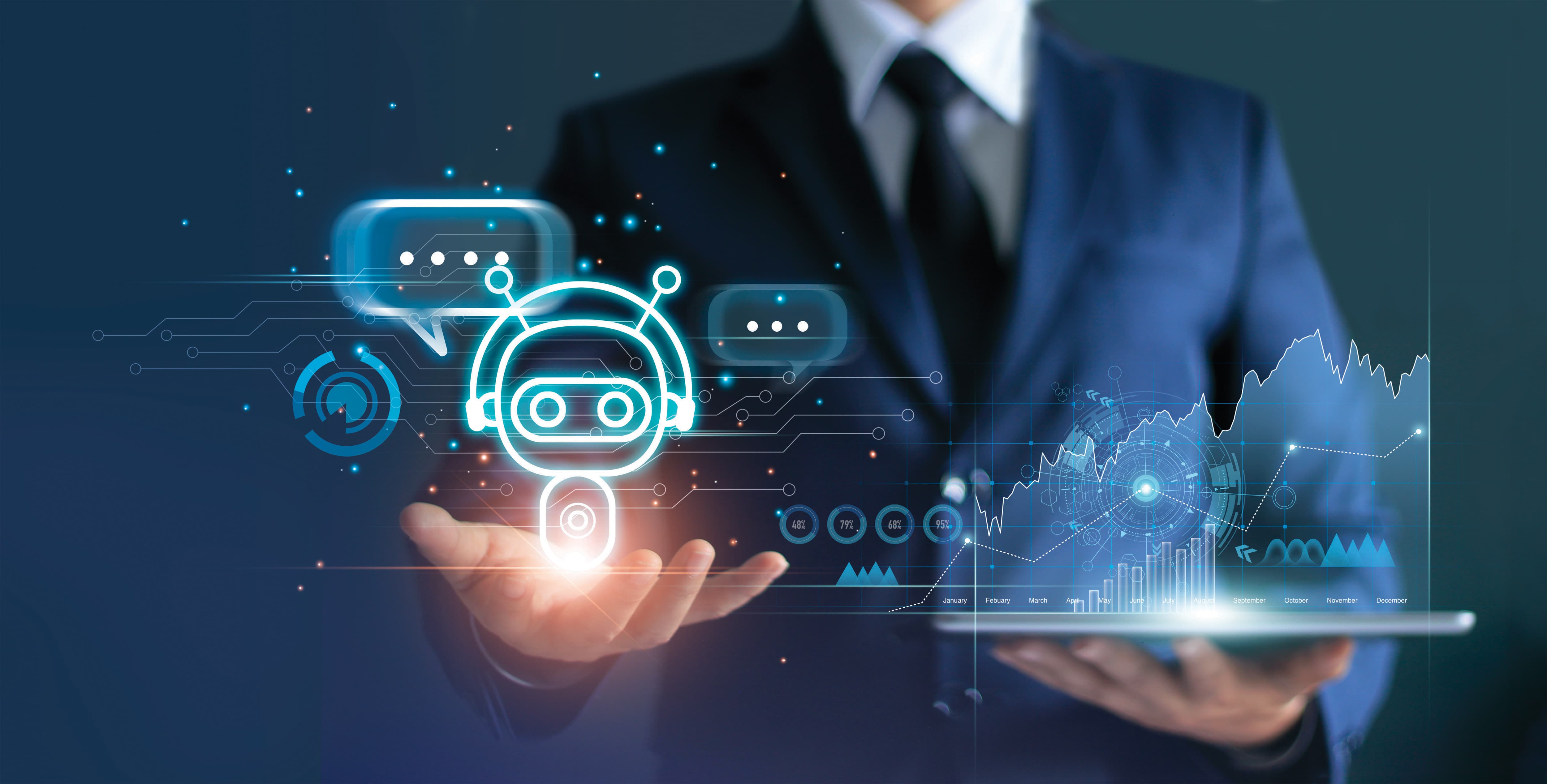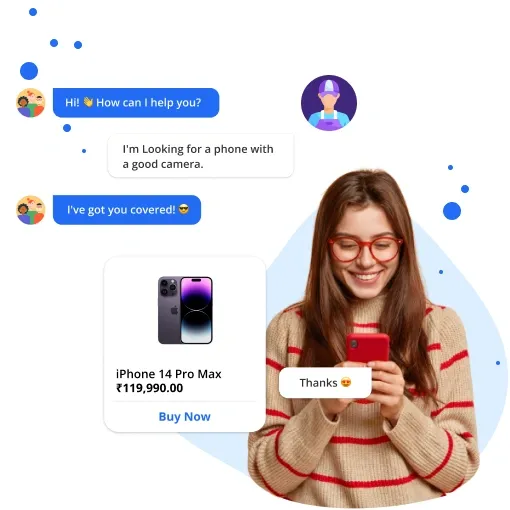What is a Business Chatbot?

Business chatbots are AI-powered software programs that simulate user conversations, providing various automated services. These bots can streamline customer service, facilitate sales, and assist with HR functions like onboarding and training.
Types of Business Chatbots

Rule-Based Chatbots:
These chatbots follow predefined rules and can only respond to specific prompts. They use a decision tree algorithm that maps out possible user inputs and the corresponding responses.
AI-Driven Chatbots:
These chatbots use machine learning algorithms to understand natural language and provide personalized responses to users. They use NLP and sentiment analysis to interpret user inputs and generate appropriate responses.
Advantages of Business Chatbots:
1. Reduce Response Time
With chatbots, customers can get instant responses to their inquiries. This reduces the waiting time and enhances customer satisfaction.
2. Provide 24/7 Customer Service
Chatbots can handle inquiries around the clock, providing customers with access to support whenever they need it.
3. Handle Multiple Inquiries at Once
Chatbots can handle multiple inquiries at once, increasing customer service efficiency and reducing the workload for human support staff.
4. Increase Customer Satisfaction
Chatbots provide instant, personalized support, increasing customer satisfaction and loyalty.
5. Reduce Workload for Customer Support Agents:
Chatbots can minimize the strain on human support agents by addressing simple inquiries, allowing them to focus on more difficult issues.
How Business Chatbots Work:
Business chatbots use NLP to understand the customer's input and then use machine learning algorithms to generate an appropriate response. The chatbot will then provide a response to the customer, which can be in the form of text or voice.
Chatbots use various components to function, including:
User Input: Chatbots receive user input through messaging platforms, voice assistants, or other channels.
Natural Language Processing (NLP): NLP is used to understand the user's input and generate appropriate responses.
Machine Learning: Machine learning algorithms learn from previous interactions and improve the chatbot's performance.
Why Use a Business Chatbot?
Business chatbots provide numerous benefits to companies, including:
Cost Savings: Chatbots can handle multiple inquiries simultaneously, reducing the need for human support staff. This can result in cost savings for the company.
Improved Customer Service: Chatbots can provide instant, personalized customer support, increasing customer satisfaction.
Increased Revenue: Chatbots can assist with sales by guiding customers through purchasing and providing personalized product recommendations.
Enhanced Customer Engagement: Chatbots can provide personalized recommendations based on a customer's purchase history and preferences, increasing customer engagement.
When to Use a Business Chatbot?
Business chatbots can be used in a variety of situations, including:
1. Providing Customer Service
Chatbots can handle frequently asked questions and provide support around the clock, enhancing customer experience.
2. Facilitating Sales
Chatbots can assist with purchasing and provide personalized product recommendations, increasing sales.
3. Streamlining HR Processes
Chatbots can assist with onboarding, training, and other HR functions, reducing the workload for HR staff.
4. Enhancing Marketing Efforts
Chatbots can engage customers and provide personalized recommendations based on their preferences, enhancing marketing efforts.
Who Uses Business Chatbots?
Many companies across various industries use business chatbots, including:
Healthcare: Chatbots can provide personalized health recommendations and assist with appointment scheduling.
Retail: Chatbots can assist with sales and provide product recommendations to customers.
Finance: Chatbots can assist with banking and investment services.
Education: Chatbots can assist with student support and admissions processes.
How to Build a Business Chatbot?
Defining the Chatbot's Purpose: Identify the chatbot's purpose and the problems it is designed to solve.
Determining the Target Audience: Identify the target audience and their needs to ensure the chatbot is tailored.
Developing a Conversational Flow: Develop a conversational flow that maps out the possible user inputs and the corresponding responses.
Choosing a Chatbot Platform: Choose a chatbot platform that suits the needs of the business and the target audience. Popular chatbot platforms include BotPenguin, Tidio, etc.
Integrating the Chatbot with Existing Systems: Integrate the chatbot with existing CRM, ERP, and HRM systems to ensure a seamless experience for customers and employees.
Testing and Refining the Chatbot: To increase the chatbot's performance, test it and adjust it based on user feedback.
Where to Use a Business Chatbot?
Business chatbots can be deployed on a variety of platforms, including:
Website: Chatbots can be integrated into a company's website to support and facilitate sales.
Social Media: Chatbots can be used on social media platforms like Facebook Messenger and WhatsApp to engage customers and provide support.
Mobile Apps: Chatbots can be integrated into apps to provide personalized support and recommendations.
Messaging Platforms: Chatbots can be deployed on messaging platforms like Slack and Microsoft Teams to streamline internal communication and HR processes.
Frequently Asked Questions (FAQs)
What is the primary function of a business chatbot?
A business chatbot automates customer support, lead generation, and sales processes, providing instant responses and improving customer engagement.
How does a business chatbot integrate with existing systems?
Business chatbots integrate with CRM, helpdesk, and other platforms through APIs, streamlining workflows and centralizing customer interactions.
Can a business chatbot understand and process multiple languages?
A business chatbot can be programmed to understand and respond to multiple languages, enhancing global communication and customer support.
What are the cost implications of implementing a business chatbot?
While initial setup costs vary, business chatbots reduce expenses over time by streamlining processes, automating tasks, and decreasing human resource requirements.
How does a business chatbot handle complex queries or issues?
Business chatbots can escalate complex queries to human agents, ensuring customers receive the appropriate level of support and maintaining satisfaction.

